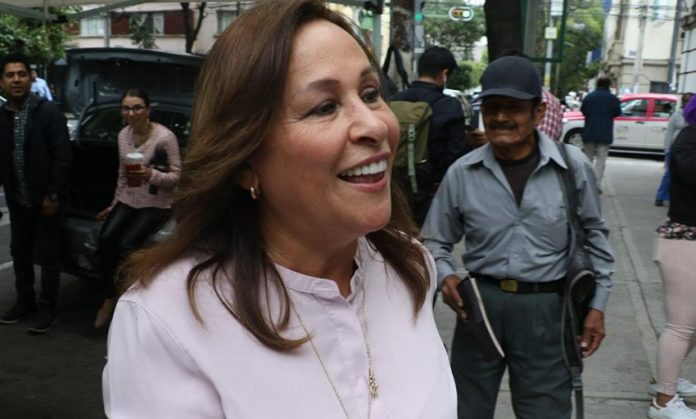A Fitch Ratings downgrade in its outlook on debt held by the state oil company Pemex has been called “absurd” by Mexico’s next energy secretary.
Fitch said yesterday that “the outlook revision to negative from stable reflects the increased uncertainty about Pemex’s future business strategy coupled with the company’s deteriorating standalone credit profile.”
Later in the day, Rocío Nahle said, “I don’t understand what data Fitch has when it is saying that there is uncertainty in Pemex’s business strategy, it’s absurd.”
Nahle pointed to the future investments in Pemex already announced by president-elect López Obrador as justification for her “absurd” assessment.
López Obrador said in July that his government will build a new US $8 billion oil refinery in Tabasco and revamp the six already in operation as part of its strategy to boost crude oil production.
Nahle, a petrochemical engineer by profession, added that the incoming administration would work to have the outlook revised.
“I respect them [Fitch] but I don’t agree with them, we’re going to get to work. We have to start producing and building,” she said.
Fitch’s downward revision on Pemex debt was cited by analysts as one factor that contributed to the weakening of the peso yesterday to its lowest level in more than a month.
The currency fell by as much as 1% in mid-session trading to 19.34 pesos to the US dollar before recovering slightly to 19.23.
Uncertainty surrounding the future of the new Mexico City International Airport (NAICM) was cited as another factor in the peso’s decline.
Citizens will have the opportunity to vote on whether the current project should continue or whether it should be scrapped in favor of adapting the Santa Lucía Air Force Base for commercial aviation as well as upgrading the existing Mexico City and Toluca airports.
“The issue of the Mexico City airport referendum is starting to receive a little bit more attention, which introduces a little bit of uncertainty. So, that might have driven some underperformance in the peso,” said Kenneth Lam, a strategist at Citigroup.
With regard to Fitch’s Pemex assessment, CI Banco analyst James Salazar said the company’s “finances should continue to be handled with great caution so as not to cause additional imbalances that will increase its debt.”
Rating agency Moody’s warned this week that a plan to stop exporting oil poses a threat to Pemex’s finances because its income would be limited to pesos whereas most of its debt is in US dollars and other hard currencies.
Halting oil exports could cost the new government income of up to 2% of gross domestic product (GDP).
Source: El Financiero (sp), Reuters (en)
